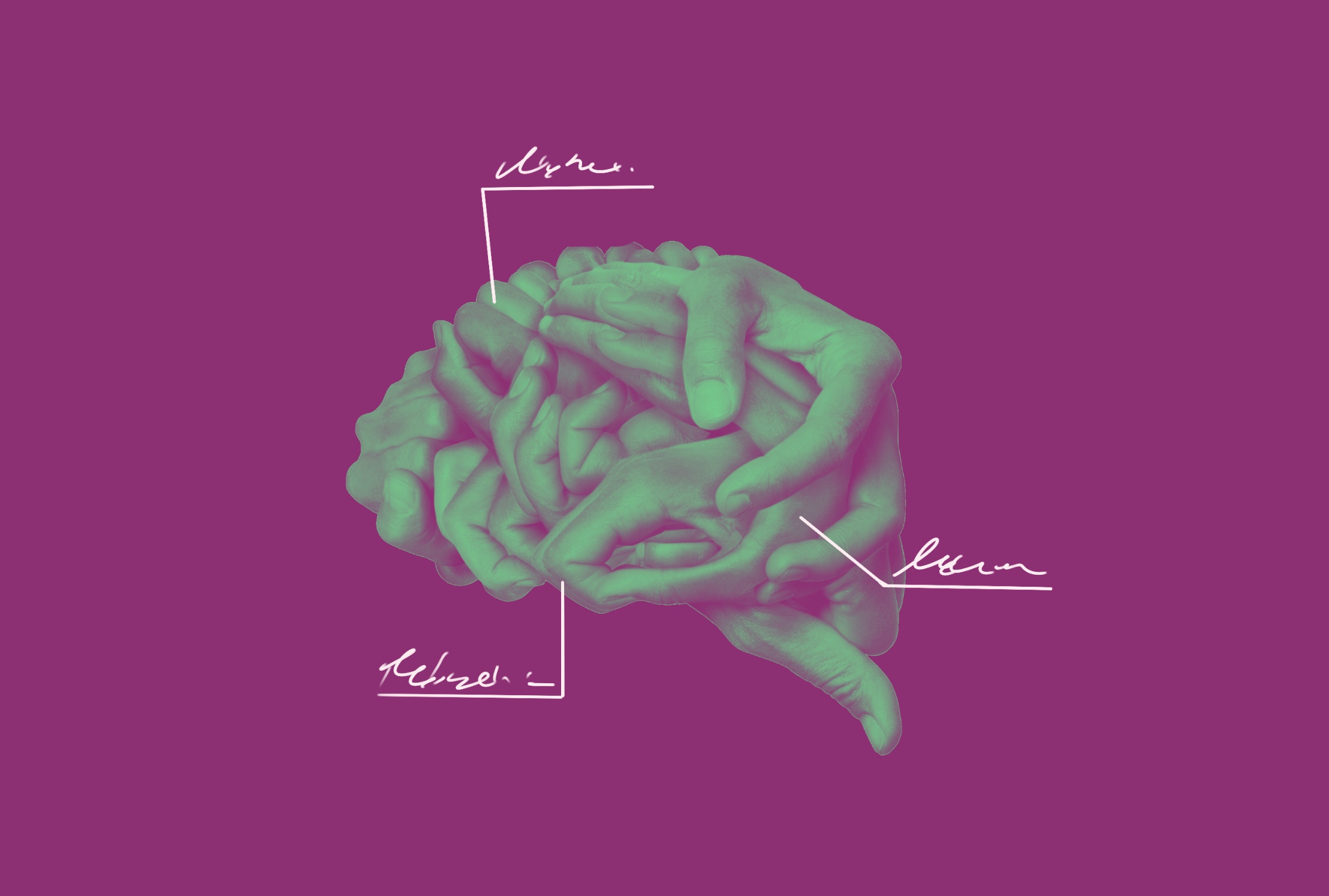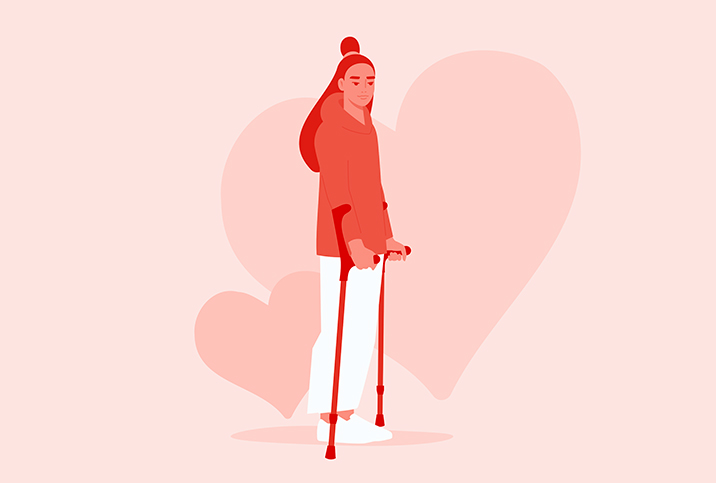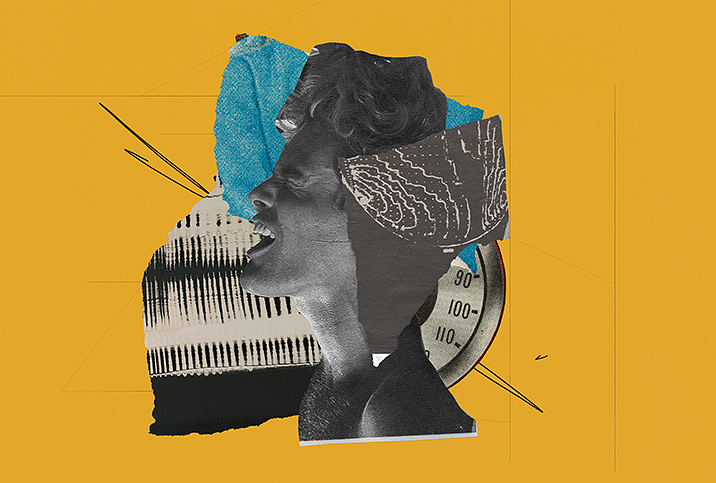How a Traumatic Brain Injury Impacts a Man's Sexual Health

After suffering a traumatic brain injury (TBI) in a car accident, Jon, a man in his 20s, began experiencing sexual dysfunction. He had trouble maintaining an erection and reaching orgasm during sex, so he saw urologist Emad Ibrahim, M.D., the director of the clinical andrology lab at the Desai Sethi Urology Institute at the University of Miami.
Jon (a pseudonym) wanted to have children with his partner, and fortunately, Ibrahim was able to successfully treat him. Ibrahim started him on a daily low dose of tadalafil in the mornings, which was effective in helping Jon get an erection.
Ibrahim then performed penile vibratory stimulation (PVS) to obtain an ejaculate sample. PVS, a first-line treatment for anejaculation (the absence of ejaculation), involves placing a vibrating stimulator on the penis. Jon's sperm was then frozen for future use during in vitro fertilization (IVF) cycles.
"This is an example of how a bad traumatic brain injury can cause multiple effects, not just sexually, but reproductive function as well," Ibrahim said.
A TBI can have wide-ranging physical and psychological impacts, all of which can have effects on sexual functioning.
"That's why we say it's multidimensional," Ibrahim explained.
Following a TBI, 24 percent to 57 percent of men experience erectile dysfunction (ED), and 29 percent to 40 percent have orgasm problems, according to a review of medical literature on the subject. The review also found TBI to be associated with reduced sex drive and/or arousal in up to 86 percent of men and reduced frequency of sex in up to 62 percent of men.
A population-based study in Taiwan found patients with TBI have a significantly higher risk of developing ED than the general population. The study found this was especially true of organic ED, or dysfunction due to abnormalities in the penile arteries and veins. However, a TBI may also lead to the other main type of ED: psychogenic, due to psychological factors. And in some cases, sexual dysfunction is a combination of organic and psychogenic ED.
What is a TBI?
A traumatic brain injury usually occurs when a sudden blow or jolt to the head damages the brain. Between 2 million and 3 million TBIs occur in the United States each year, according to the Centers for Disease Control and Prevention (CDC). TBI is a major cause of disability and death.
A concussion is a mild TBI and the most common type. Moderate TBIs result in loss of consciousness for more than 30 minutes but less than 24 hours, and severe TBIs cause loss of consciousness for more than a day.
Aside from sexual dysfunction, common symptoms of TBI include:
- Headaches
- Dizziness
- Inability to concentrate
- Memory problems
- Anger and irritability
- Sleep disruption
- Slurred speech
TBIs are definitely a contributing factor to sexual dysfunction in men, according to Paul Savage, M.D., an internist who treats U.S. Army soldiers as part of the Madigan Traumatic Brain Injury Program at the Intrepid Spirit Center in Tacoma, Washington.
TBIs can also play a role in exacerbating existing sexual dysfunction, including ED. The pain associated with these injuries may also make men more aware of their sexual complications, Savage said.
"It's a challenge when you're trying to be sexually active," he explained. "It does have an impact. I don't think it's causal, but I would tell you it certainly can be something that can precipitate it."
Researchers are uncertain of the exact mechanism behind TBIs increasing the risk for ED. It could be that an injury to the pituitary gland in the brain sparks hormonal changes that culminate in lowered testosterone and diminished erectile function.
Research on TBI and male sexual function
A large study was done in Australia on the factors associated with sexuality after TBI. Using the Brain Injury Questionnaire of Sexuality, researchers found people who suffered a TBI had worse overall sexual performance, as well as lowered mood and self-esteem.
If a man feels less confident after a TBI, it may affect his comfort with sexual activity. Brain injury sufferers often feel irritable, nervous or depressed. These emotions may have a negative impact on their sexual function, particularly their sex drive.
Another study found 20 percent of partners of people with TBIs reported their own sexual dysfunction, and 44 percent reported dissatisfaction with sexual function. Furthermore, 62 percent of partners reported a decrease in sexual activity during the year after the injury, and 34 percent reported a decrease in sex drive.
TBI and sexual dysfunction is an understudied and underappreciated tie in the medical field, according to Arthur Louis Burnett, M.D., a professor of urology at the Johns Hopkins University School of Medicine in Baltimore. Burnett believes this gap likely exists because TBIs can be severe and health problems besides those associated with sexual health may dominate the discussion and treatment plan.
"The brain is a very complex area and also just hard to study," he said. "It's hard to discriminate different kinds of hormones and neurotransmitters at the brain level that work in different ways."
Ibrahim said there's often a lack of discussion about sexual problems during the rehabilitation period after a traumatic brain injury.
"Sexuality is not a priority, either because the patient is embarrassed to talk about it or the professional in the rehab center finds other important things come as a priority, such as taking care of mobility, bowel function and other parts of the body," he said.
Ibrahim urges both patients and providers to bring attention to sexual problems so they can be addressed sooner rather than later.
"Talk to the people at a rehab center," he said. "They'll be able to guide you and help you."
TBIs in the military
More than 450,000 TBIs were reported among U.S. service members worldwide between 2000 and 2022, according to the Department of Defense.
Among military members, TBIs are commonly caused by falls, motor vehicle accidents, assaults or blasts from improvised explosive devices (IEDs). Exposure to an explosive blast accounts for approximately 60 percent of military-related TBIs.
However, most TBIs are concussions, a mild form of TBI. These often happen closer to home when military members are not deployed, such as in car accidents, sporting activities and during physical training, Savage said.
"The one I saw most recently was someone who got done with a long swim and fell in the shower," he said.
A significant concussion presents with a lot of pain, which impacts a person's ability to achieve and maintain an erection, Savage explained. If they're exhausted from working long or irregular hours, the concussion "may be that straw that broke the camel's back."
"It often has to do with the pain level," he said. "Their headaches are really impacting their erections."
Timothy "T.J." Tausch, M.D., a urologist at Central Ohio Urology Group in Columbus, explained that when he was the director of trauma, reconstructive and prosthetic urology at Walter Reed National Military Medical Center, he performed penile implants on young soldiers who had suffered TBIs. A penile implant is generally recommended for severe ED that does not respond to medication or other treatments.
Treatment for TBI and sexual dysfunction
Tausch explained that when treating men with TBI, it's important to check testosterone levels.
"We do know that after trauma and TBI that testosterone can be significantly lower, almost like a stress response," he said. "A lot of those guys will at least need to be treated for testosterone."
Some guys recover after testosterone replacement therapy (TRT), but others do not. However, checking that value and seeing what happens is critical to improving aspects like sexual desire, Tausch explained. Anorgasmia or delayed ejaculation are generally more difficult to treat than low-T or ED.
"Some of that stuff is very difficult to get a handle on, but there are options out there," he said.
Tausch thinks one of the most effective treatments is sex therapy, calling it invaluable to the TBI recovery process. He advised men to seek a sex therapist who specializes in helping patients who have suffered a brain or spinal cord injury, saying therapists are "phenomenal" at giving men strategies for sex.
"It's a wide-ranging disease process that affects every individual patient differently and warrants individualized treatment plans thought up between the physician and the patient," he added.
A multidisciplinary approach is critical. Involving neurologists, physical therapists, sex therapists, urologists and other medical professionals in the TBI recovery process is essential to managing the physical and mental challenges men face.
'It's a wide-ranging disease process that affects every individual patient differently and warrants individualized treatment plans thought up between the physician and the patient,'
At the Intrepid Spirit Center, Savage said he focuses on a holistic brand of care for men with TBIs.
"We really do a thorough job of screening them for what specifically they're coming in for," he said.
After that thorough intake, there are a variety of professionals within the facility, from acupuncturists and massage therapists to chiropractors and mental health providers.
"A lot of the folks are really struggling with sleep, pain—specifically, headaches—and their ability to stay focused on the work they need to do," Savage said. "They're constantly frustrated and irritated in that they are not operating at the level they want to be after a concussion."
Savage pointed out that sometimes a patient's medications contribute to sexual problems. Antidepressants, for instance, can cause delayed ejaculation. Pain medications and antihypertensives, which many TBI sufferers take, can also lead to sexual dysfunction.
"Sometimes people are embarrassed," Savage said. "But this is another opportunity to say, 'After my concussion, I think my sexual function has been impacted. Is there anything we can do about it?' My answer would be, 'Yes, there's a lot we can do about it.' There is definitely support within the medical profession."
Do you need help to take that first step and find a therapist or physician? Telehealth has become a bigger segment of the healthcare landscape, with more professionals offering it than ever. Giddy telehealth makes it easy to get connected to a qualified healthcare professional who can help with a variety of conditions, including brain injuries and ED.


















